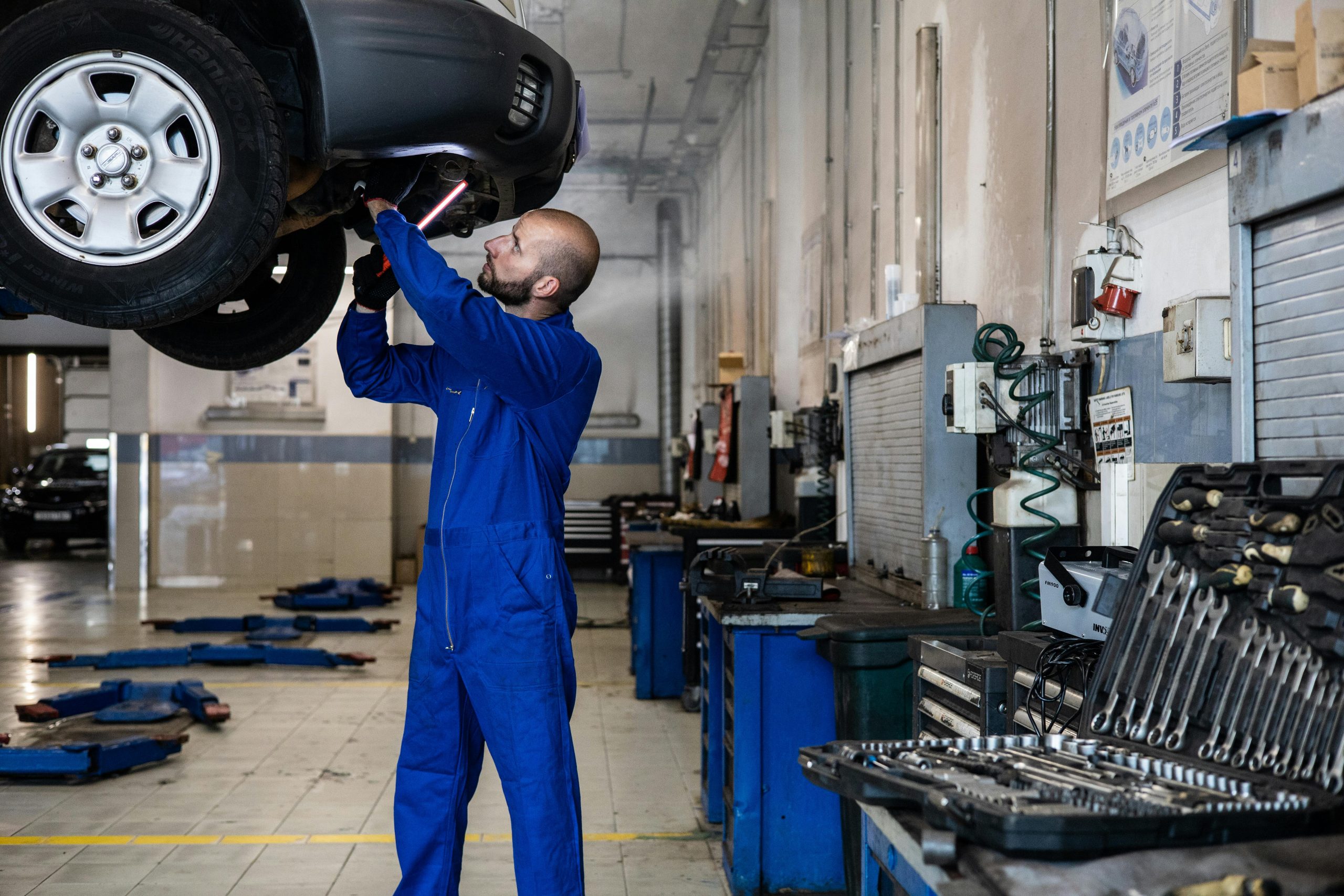Highlights
- Regular maintenance prevents breakdowns and extends your vehicle’s lifespan.
- Checking fluids, brakes, and tire pressure improves safety and fuel economy.
- Seasonal inspections help prepare your vehicle for temperature changes.
- Following manufacturer schedules avoids costly engine and transmission issues.
- Maintaining your battery, belts, and filters ensures consistent performance.
- A trusted mechanic can catch problems early through routine diagnostics.

Keeping your vehicle in top shape isn’t just about keeping it shiny—it’s about ensuring safety, performance, and longevity. Preventive maintenance is the best way to achieve all three. Instead of waiting for something to go wrong, proactive care helps you identify small issues before they become expensive problems.
Below are essential preventive maintenance tips that every car owner should know, especially if you want your vehicle to perform reliably year-round.
The Importance of Preventive Maintenance
Preventive maintenance is more than routine car care—it’s the foundation of reliable vehicle performance. Every part of your car works in sync, and neglecting even one system can trigger a chain reaction of failures.
When you delay oil changes, ignore worn tires, or skip inspections, your vehicle works harder than it should. This can reduce efficiency, weaken key components, and eventually lead to breakdowns. For example, skipping simple brake checks can lead to rotor damage, which costs significantly more to repair. Similarly, driving on underinflated tires not only reduces fuel efficiency but also increases wear and the risk of blowouts.
Regular maintenance helps you:
- Improve safety by ensuring all systems function properly.
- Save money by catching minor problems early.
- Maintain resale value with a clean service record.
- Boost fuel efficiency and performance.
Routine Checks Every Driver Should Perform
You don’t need to be a mechanic to keep your car in great condition. A few basic checks can make a huge difference in performance and reliability.
- Engine Oil and Filter
Oil is the lifeblood of your engine. It lubricates moving parts, reduces friction, and helps control temperature.
- Check oil levels monthly and top off if necessary.
- Change your oil and filter every 5,000 to 7,500 miles (or as your manual recommends).
- Use the correct oil viscosity for your vehicle and climate.
- Look for leaks under the car or oil spots on your driveway.
Dirty or old oil can cause engine parts to grind, wear faster, and overheat, leading to major repairs.
- Tire Care
Tires are your only contact with the road, so maintaining them is crucial for performance and safety.
- Check tire pressure monthly. Proper inflation improves fuel economy and traction.
- Inspect tread depth using a coin or tread gauge—replace tires when tread is below 2/32 inch.
- Rotate tires every 6,000 to 8,000 miles to ensure even wear.
- Get wheel alignments annually or after hitting potholes.
Improperly maintained tires can cause vibration, poor handling, and even blowouts at high speeds.
- Brake System
Your braking system is one of your car’s most important safety features.
- Listen for squealing or grinding noises when braking—these indicate worn pads.
- Check brake fluid levels and top up if needed.
- Have your mechanic inspect rotors and calipers annually.
- If your car pulls to one side or the pedal feels soft, get it serviced immediately.
Ignoring brake maintenance can result in longer stopping distances or complete brake failure, both of which are dangerous.
- Battery Maintenance
A weak or corroded battery can leave you stranded without warning.
- Check terminals for corrosion and clean them using baking soda and water.
- Ensure cables are tight and free of fraying.
- Test battery voltage twice a year, especially before extreme weather changes.
- If your battery is over three years old, consider testing or replacing it at one of the top 10 battery stores in your area.
Cold weather can reduce battery power by as much as 50%, so keeping it charged and clean is essential.
Fluid Levels and Replacements
Your vehicle relies on several vital fluids beyond just oil. Each one serves a different function, and neglecting them can lead to mechanical damage.
Key Fluids to Check:
- Coolant/Antifreeze: Prevents your engine from overheating. Check levels every few months and flush every two to three years.
- Transmission Fluid: Keeps gears shifting smoothly. If it appears dark or smells burnt, it’s time for a change.
- Brake Fluid: Essential for safe braking. Low levels may indicate a leak.
- Power Steering Fluid: Helps with smooth steering. Top off if steering feels stiff.
- Windshield Washer Fluid: Keeps visibility clear. Refill as needed.
These fluids should be inspected monthly. Look for leaks under the car and check your manual for the correct fluid types and change intervals.
Seasonal Maintenance Tips

Weather changes affect your car’s performance more than you might think. Different seasons require specific checks and preparations.
- Preparing for Summer
Hot weather increases strain on your cooling system, tires, and battery.
- Inspect radiator hoses for cracks or bulges.
- Test the air conditioning system before the heat sets in.
- Check tire pressure weekly—heat expands air and can cause overinflation.
- Keep coolant levels topped off.
- Preparing for Winter
Cold temperatures can reduce tire pressure, battery power, and oil flow.
- Test your battery’s charge and replace if weak.
- Switch to winter-grade oil if you live in a cold region.
- Keep your gas tank at least half full to prevent fuel line freeze.
- Inspect windshield wipers and replace them if streaking occurs.
By performing these seasonal tasks, you’ll reduce the risk of weather-related breakdowns.
Keeping Your Engine Healthy
Your engine is the most expensive component of your vehicle, and it requires regular care to stay efficient.
Key Engine Care Tips:
- Replace air filters every 12,000 to 15,000 miles to maintain fuel efficiency.
- Change spark plugs as recommended—worn plugs reduce power and mileage.
- Use quality fuel to prevent buildup in the fuel injectors.
- Schedule periodic engine tune-ups to check for performance issues.
A well-maintained engine runs smoothly, accelerates better, and consumes less fuel.
Exterior and Interior Care
While performance is key, protecting your car’s appearance also contributes to long-term value and reliability.
Exterior Care:
- Wash your car regularly to remove dirt, salt, and pollutants that cause rust.
- Apply wax twice a year to protect paint and make cleaning easier.
- Check headlights, brake lights, and turn signals monthly for functionality.
Interior Care:
- Vacuum carpets and seats to prevent wear.
- Clean dashboard and glass to reduce glare.
- Keep floor mats dry to prevent mold or rusting beneath.
Consistent cleaning not only enhances comfort but also preserves resale value.
Following Your Vehicle’s Maintenance Schedule
Every car has a manufacturer-recommended service schedule outlined in the owner’s manual. Following it ensures optimal performance and avoids warranty issues.
What to Track:
- Oil changes and filter replacements.
- Tire rotation and alignment intervals.
- Transmission and brake fluid service.
- Battery checks and replacements.
- Timing belt or chain replacement milestones.
Many drivers use smartphone apps to log maintenance records, which makes it easy to track service history and stay on top of due dates.
Signs It’s Time for Professional Service
Sometimes your vehicle sends warning signs that it needs attention. Ignoring these can lead to serious damage.
Common Warning Signs:
- Unusual noises (knocking, squealing, grinding).
- Vibrations or pulling while driving.
- Dashboard warning lights that persist.
- Poor fuel economy or power loss.
- Burning smells or smoke from the engine.
If you notice any of these, schedule an inspection immediately. A trusted mechanic can diagnose problems before they worsen.
Building Good Maintenance Habits
Preventive maintenance isn’t a one-time task—it’s a habit. By setting up a simple routine, you can make car care easy and consistent.
Smart Habits to Adopt:
- Perform a monthly walk-around inspection—check tires, lights, and fluids.
- Set maintenance reminders in your phone or vehicle app.
- Keep a service log to record dates, mileage, and notes.
- Find a reliable local mechanic for consistent service.
- Store maintenance receipts to support resale value.
Even ten minutes of attention per month can prevent costly issues down the road.
Preventive Maintenance Myths
Many drivers believe certain myths that lead to poor maintenance practices. Let’s clear up a few:
- Myth: “If it’s running fine, I don’t need to check it.”
- Reality: Many parts wear gradually, and problems often appear suddenly after neglect.
- Myth: “All fluids last forever.”
- Reality: Fluids degrade over time and must be replaced periodically.
- Myth: “New cars don’t need maintenance.”
- Reality: Even new vehicles require checks to prevent premature wear.
Understanding these misconceptions helps drivers make informed decisions about car care.
Conclusion
Preventive maintenance is the key to keeping your vehicle safe, efficient, and reliable. From checking fluids and tires to scheduling professional inspections, these small steps make a big difference over time.
By investing a little time in routine care, you’ll avoid costly repairs, extend your car’s life, and enjoy smoother, more dependable driving. Whether you’re a daily commuter or a weekend traveler, preventive maintenance ensures that your vehicle will always be ready for the road ahead.